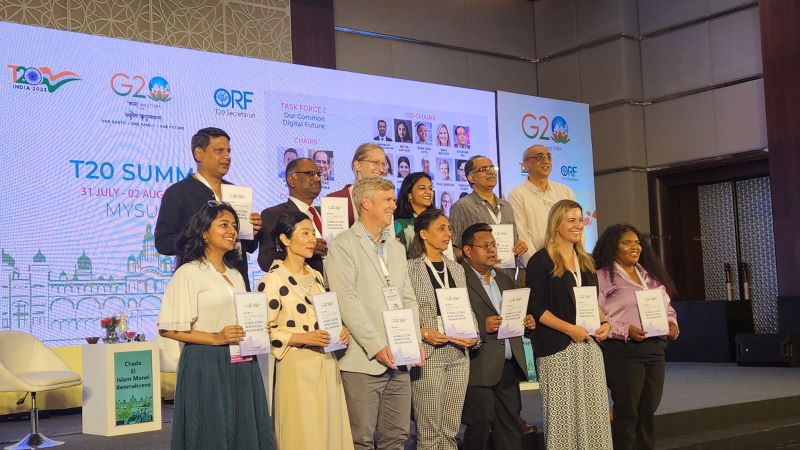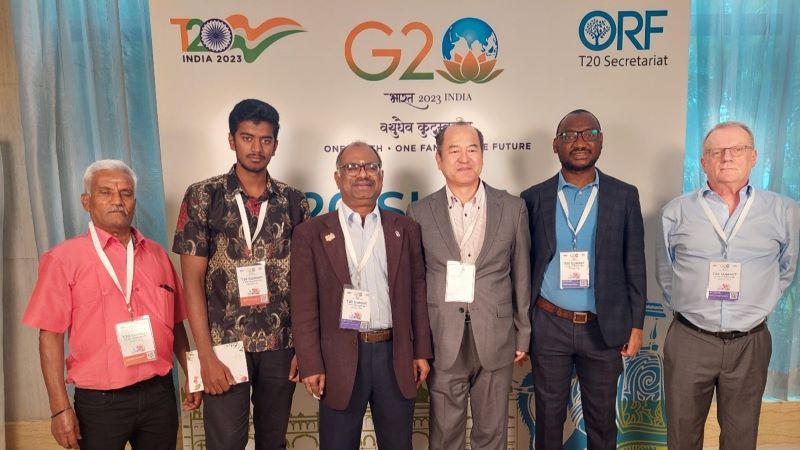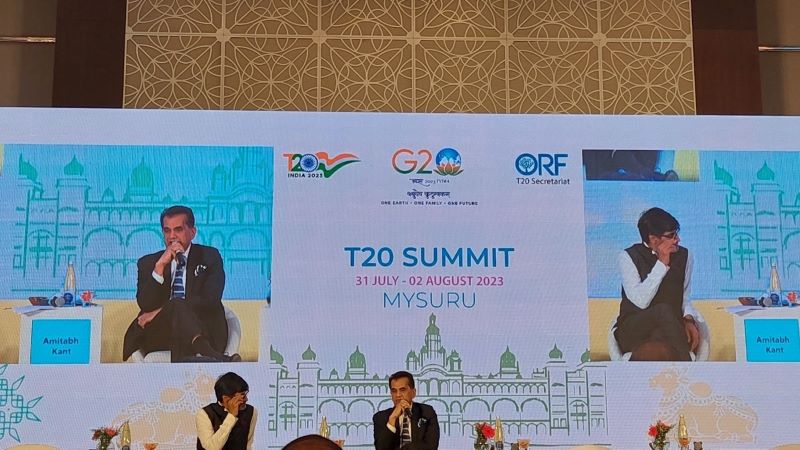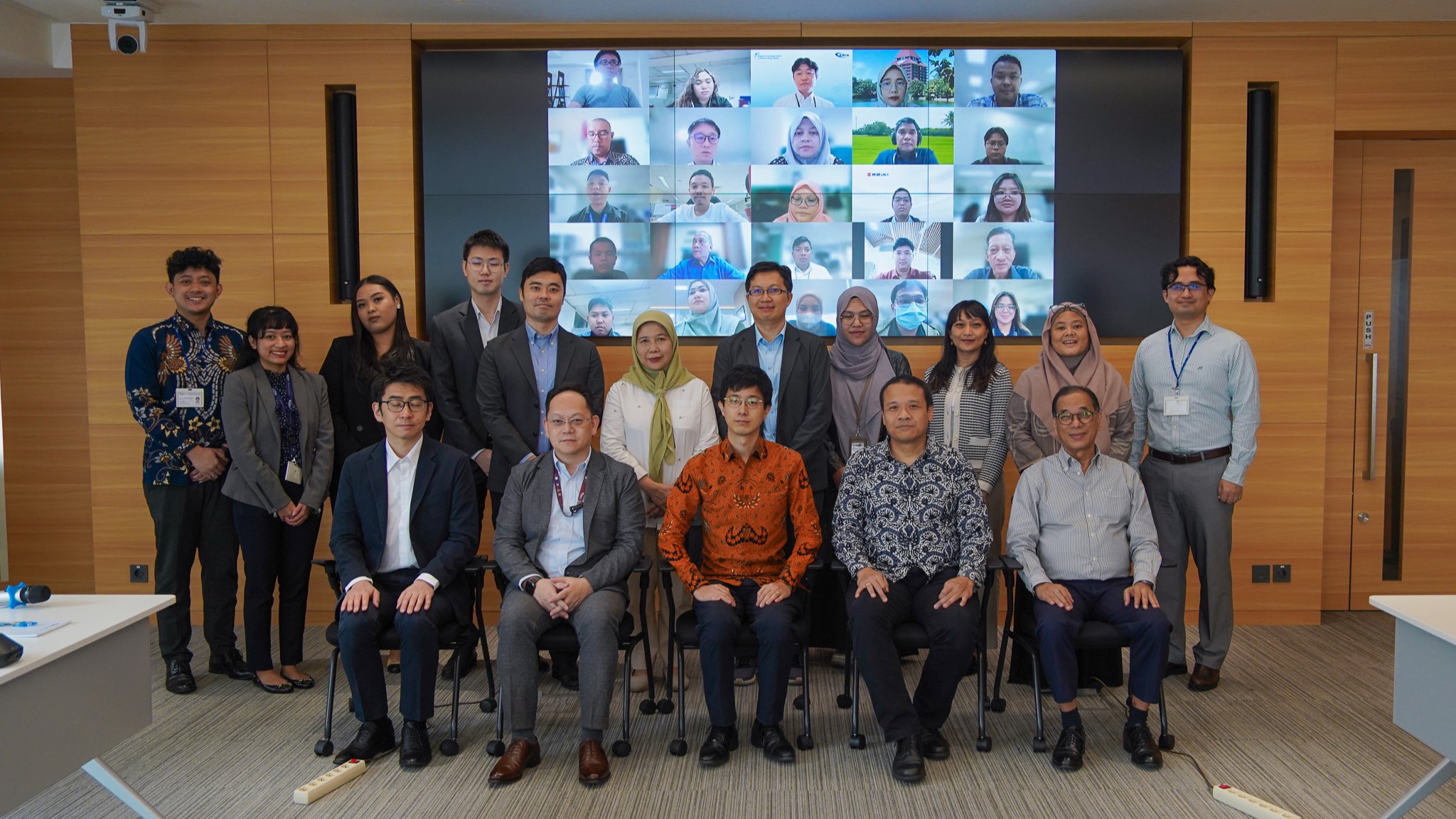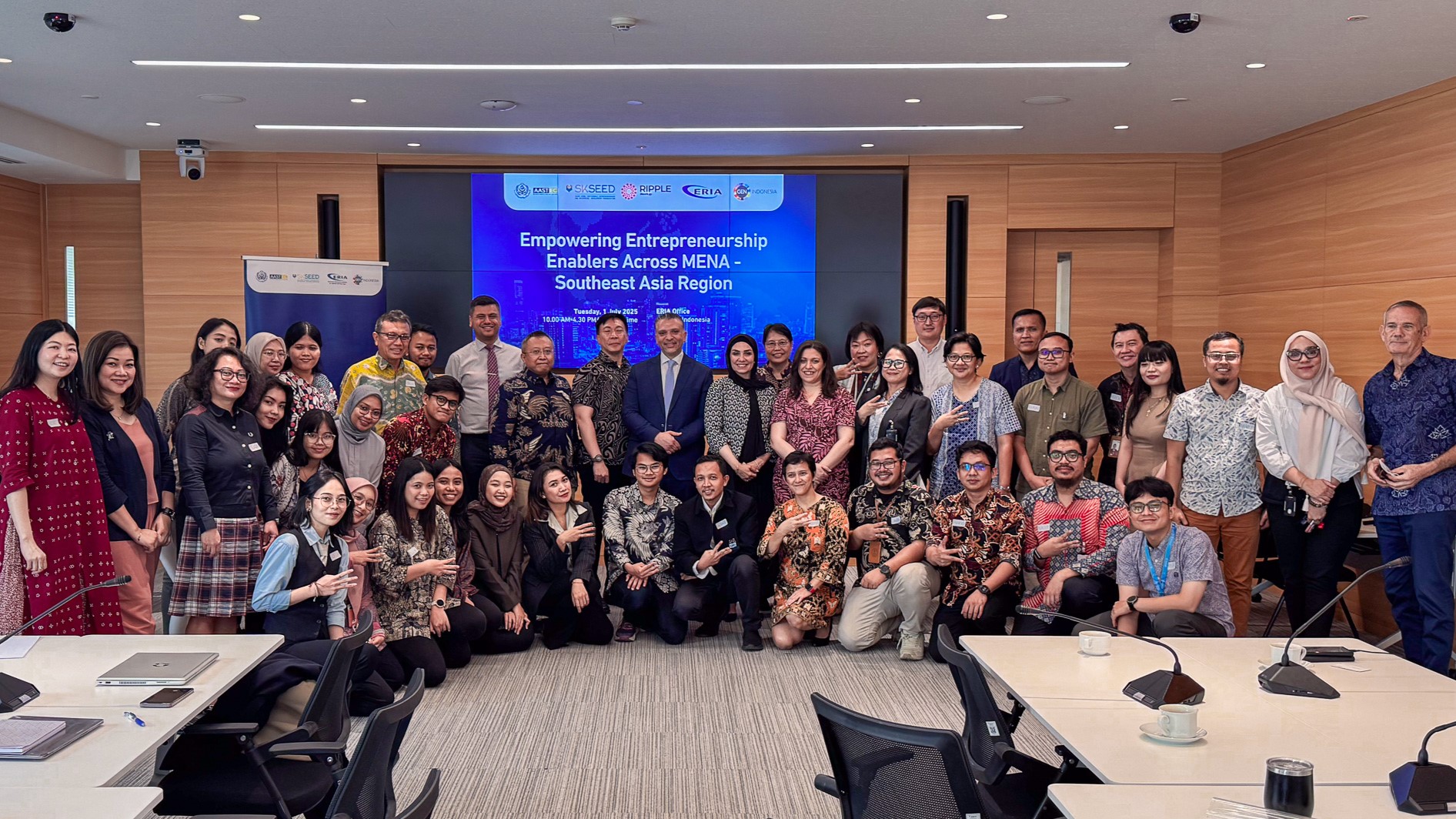ERIA Joins T20 Summit Discussing Key Deliverables of India's G20 Presidency
Share Article:
Print Article:
Mysuru, 31 July-2 August 2023: The T20 Summit in Mysuru, India, organised by the Observer Research Foundation (ORF), which focused on key policy issues and the role of think tanks in shaping global agendas in the light of India's G20 Presidency, was joined by over 200 participants from 35 countries and 110 institutions, including the Economic Research Institute of ASEAN and East Asia (ERIA).
The T20 is the G20 official engagement group and serves as an ideas bank for the G20 by bringing together think tanks and high-level experts to deliberate relevant policy issues shaping global economic architecture.
Ambassador Sujan Chinoy, Chair of the Think20 Core Group of India's G20 Presidency and Director General at the Manohar Parrikar Institute for Defence Studies and Analyses, spoke of the key messages coming from over 300 policy briefs and other research products by 1,000 authors from over 700 institutions worldwide.
First, macroeconomic stability as a precondition for economic growth; second, recognition of population-scale digital transformations brought about by 'India’s digital public infrastructure (DPI) and India Stack'. (India Stack is a set of application programming interfaces – APIs – which allows governments, businesses, start-ups and developers to utilise an unique digital Infrastructure to solve India’s hard problems toward presence-less, paperless, and cashless service delivery).
Third, a focus on environmental protection and solutions for responsible consumption, particularly the lifestyle for environment (LiFE) movement; fourth, the importance of climate governance, with a central focus on 'the energy security, sustainability and access of developing countries'; fifth, the critical need for women-led development and gender equality. Sixth, a need to reimagine the global financial architecture and fiscal landscape; seventh, consensus that multilateral reform is imperative; and eighth, recognition that the G20 should engage with underrepresented regions, and seek to work toward the inclusion of the African Union as a member of the G20.
There have been marked continuities between the Indonesian and Indian presidencies, said Professor Bambang Brodjonegoro of University of Indonesia's Faculty of Economics. The similarity of the priorities identified by both countries’ T20 communiques stemmed from the fact that both were emerging economies with broadly similar development concerns; and India had been closely involved with and supportive of the Indonesian presidency.
Ahead of the inception of the Brazilian G20 Presidency 2024, Luciano Serva, President of the Institute of Applied Economic Research, Brazil, said a common strand running through the present G20 troika (Indonesia, India, and Brazil) was a focus on promoting inclusive growth and advancing efforts to meet the United Nations' Sustainable Development Goals (SDGs). She also felt that pushing for multilateral reforms was likely to be a core element of the Brazilian G20 agenda, and that closer dialogue was required between the G20 and T20.
After the thematic panel discussions, the summit's inaugural evening concluded with a special address by Amitabh Kant, India’s G20 Sherpa, who complimented the T20 for its contribution as a global ideas bank. He said the Indian Presidency had sought to be ambitious, action-oriented, and decisive, coming as it did at a time of global slowdowns, debt crises, and geopolitical turbulence. Each of the Presidency’s major outcome documents – including the T20 Communique – had thus attempted to define a clear roadmap for action.
The T20 Communique, a key outcome document which synthesizes insights from the T20 Taskforce statements, policy briefs, and ideas box – a novel platform introduced by Think20 India to engage citizens and allow them to share their perspectives
The second day of the summit saw five thematic panel discussions. As co-chair of the Task Force on our Common Digital Future, Dr Venkatachalam Anbumozhi, ERIA Director for Research Strategy and Innovation, joined the deliberations on Innovation Unleashed – Digital Public Infrastructure (DPI), which discussed the role of DPI in building inclusive and sustainable digital societies and fostering innovation. Quoting ERIA's policy brief, he underscored the potential to facilitate public service delivery and sustainability and support emerging technologies. The summary of the ERIA side event on DPI and deep sustainability is available here.
A special session titled Brazil Calling – The Road to Rio, explored continuity and cohesion between emerging economies in the G20 troika under Brazil’s G20 presidency. Speakers provided insights into Brazil’s potential G20 priorities.
During the concluding session, Indian Foreign Minister Subrahmanyam Jaishankar drew attention to the International Monetary Fund's (IMF) projection that 80% of the world’s near-future growth would come from emerging markets and developing countries, and that the G20 troika and South Africa made for a historic moment when four developing countries in succession could set and steer a new global agenda.
'For the first time ever, there is a real chance to ensure a greater flow of resources to support the SDGs and climate action,' he said.
Given that changes in emerging nations could lift millions out of poverty, it is critical to initiate the process of reforming the global financial architecture and stabilizing lending rates, he said. The transformational impacts of technology were a defining feature of the present, and women-led development was another area where India had demonstrated its G20 leadership.
Over 200 participants from 35 countries and nearly 110 institutions of the two-day meetings agreed there was a stronger need than ever for countries to work collaboratively; to further mainstream think tanks into policy planning processes; to build mechanisms to enable stronger convergences between the G20 and the T20; and to devise creative forms of engagement between think tanks, governments, and intergovernmental organizations.
Participants included ministers, diplomats, policy planners, heads of think tanks and research institutions, civil society organizations, and eminent thinkers whose collective thoughts provided rich and diverse recommendations for discussion at the G20 Leader’s Summit, scheduled for 9-10 September in New Delhi.
